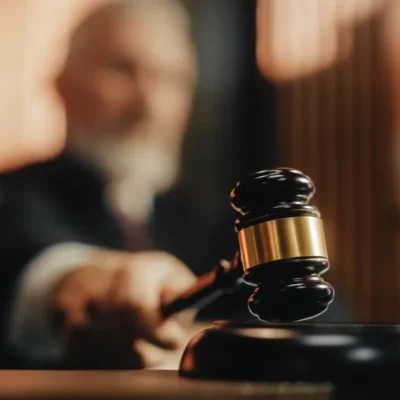Incest is classified as a criminal offense under the Crimes Act 1900 (NSW), where it is addressed explicitly in sections 78A, 78B, 78C, and 78F. Before these laws were introduced in 1924, incest was not criminally prosecuted but viewed as a moral violation governed by religious institutions.
So, why is incest a crime? The shift towards criminalisation reflected changing societal views, recognising incestuous relationships as morally and socially unacceptable.
The term “incest” refers to consensual sexual activities between close family members who are related by blood to a degree that prohibits marriage under the Marriage Act 1961 (Cth). This includes relations such as parent and child, siblings, or grandparent and grandchild, provided all parties involved are above the age of consent.
Over time, community standards evolved, and what was once seen as a private family matter became acknowledged as a public concern. This evolution led to the stringent laws we see today aimed at protecting vulnerable individuals and maintaining social norms.
Exploring Incest Laws in NSW: Why is Incest a Crime?
Incest is a serious crime under the Crimes Act 1900 (NSW), explicitly outlined in sections 78A to 78F. The question “Why is incest a crime?” stems from the nature of family relationships and the potential abuse of power and trust they involve.
Section 78A states that engaging in sexual acts or intercourse with a close family member who is 16 years or older can result in a maximum prison sentence of eight years.
So, who qualifies as a “close family member”? According to the law, this involves family relationships such as parents, children, siblings (including half-siblings), grandparents, and grandchildren. This definition applies regardless of whether the relationship is through birth or otherwise.
Now, what does “sexual intercourse” mean in this context? The law under section 61H explains it as any sexual connection involving penetration, whether it’s the genitalia or anus, by any body part or object, except when it’s done for proper medical purposes. It also covers oral sex and other forms of sexual contact.
Attempting to commit incest isn’t taken lightly either. Section 78B imposes a maximum penalty of two years for attempts. Interestingly, there’s a statutory defense in section 78C(1) where a person can argue they didn’t know the other person was related to them. However, this defense is quite rare and difficult to prove.
It’s also important to note that consent isn’t a valid defense in incest cases. Section 78C(2) clarifies that even if both parties agreed to the act, it doesn’t excuse the crime.
Additionally, any prosecution for incest or attempted incest must get the green light from the NSW Attorney-General, as stated in section 78F. This step ensures that such serious charges are reviewed at the highest level before proceeding.
At KPT Legal, we have the expertise and experience to handle these sensitive cases professionally. If you or someone you know is facing incest charges, reaching out to our team can provide the guidance and defense needed during such challenging times.
Incest Sentencing Statistics in NSW
Curious about how incest cases are sentenced in NSW? According to data from the NSW Judicial Commission, there have been seven people sentenced for incest up to September 2018, all under section 78A of the Crimes Act 1900. These cases were all handled by the District Court of NSW.
Out of these seven cases, five individuals received prison sentences, while two were given good behaviour bonds along with criminal convictions. On average, those sentenced to prison faced a full term of around four and a half years, with a mean non-parole period of roughly three years.
Controversy Surrounding NSW Judge’s Comments on Incest
In 2014, NSW District Court Judge Garry Neilson faced significant backlash for his remarks during a case involving a 58-year-old man, referred to as ‘MRM,’ accused of sexually assaulting his sister back in 1981 when she was 17 or 18 years old.
The controversy began when Judge Neilson chose not to admit “tendency evidence” in the trial. Tendency evidence is used to demonstrate a pattern of behavior, suggesting that a defendant is likely to act in a particular way or possess a certain mindset. However, to be admissible, this evidence must hold “significant probative value.”
In MRM’s case, the tendency evidence was related to his earlier guilty plea for sexually assaulting the same sister years before, when she was just 10 or 11 years old. The prosecution argued that this previous admission indicated MRM’s ongoing sexual interest in his sister.
Judge Neilson, however, excluded this evidence, reasoning that the context of the incidents differed significantly. He noted the age difference of the complainant during the two periods and pointed out that the later assault occurred after she had matured, had other sexual relationships, and even had a child.
He controversially suggested that a jury might not find the actions of an adult brother towards his sexually mature sister as inherently problematic, especially given her personal history.
Adding to the uproar, Judge Neilson compared societal attitudes towards incest to those towards homosexuality, which were once considered taboo but are now widely accepted. He speculated that incest might one day be viewed similarly.
Although he acknowledged that incest is currently criminalised due to the risk of genetic defects in offspring, he suggested that modern contraceptives and abortion could mitigate these concerns.
His comments sparked a public outcry, leading to his apology for the insensitive remarks. This case highlights the complexities and sensitivities surrounding incest cases and the importance of careful judicial consideration.
Why is incest a crime? Understanding this question is crucial, as it underscores the legal and moral foundations that guide such sensitive cases.
At KPT Legal, we recognise the complexities and sensitivities involved in incest cases.
Why is incest a crime? Understanding the legal and moral reasons is crucial. If you or someone you know is facing such charges, it is essential to have expert legal representation. Contact us today for professional legal advice.
Disclaimer: This is intended as general information only and not to be construed as legal advice. The above information is subject to changes over time. You should always seek professional advice beforetaking any course of action.















